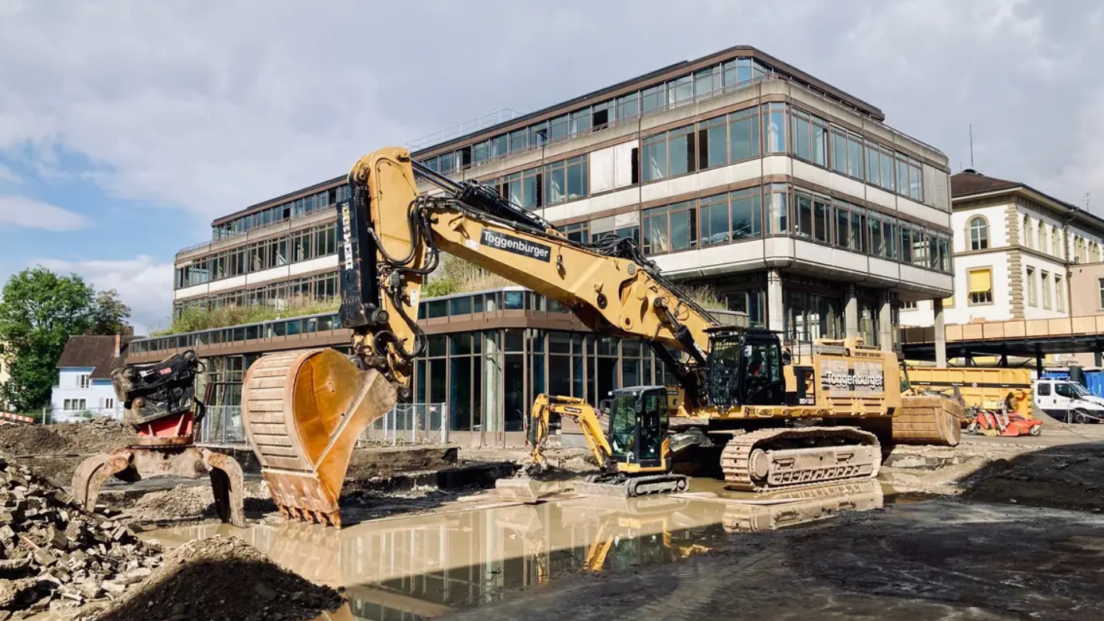Start of construction for the ZHAW School of Engineering extension

With the official start of construction work on two new laboratory buildings and a public park, the Zurich University of Applied Sciences (ZHAW) in Winterthur is entering a new era. This expansion strengthens the university location and promotes innovative teaching and research facilities on "Campus T".
The first construction phase comprises the construction of two five-storey laboratory buildings, which provide urgently needed space for teaching, research and development. These modern buildings complement the historic buildings of the former technical centre and are flexibly designed to meet the changing requirements of the university in the long term. The buildings will also be connected to Winterthur’s district heating network and equipped with photovoltaic systems, making an important contribution to a sustainable energy supply.
More than just university buildings – a public space for all
Parallel to the construction of the laboratory buildings, the Eulach will be integrated into a natural park. This park offers not only students but also the public a green oasis of relaxation in the centre of the city. The river will be ecologically enhanced and two new bridges will connect the old town with “Campus T” and the surrounding neighbourhoods. The park serves as a lively meeting place that harmoniously combines education and nature.
Timetable and outlook
The existing TB building will be demolished this year and excavation for the new TT laboratory building will begin. The shell of the first new building should be completed by 2027, while the second building is expected to be ready for occupancy in 2029. This expansion of the ZHAW is an important step for Winterthur as a centre of education and research, which will further enhance its attractiveness and innovative strength.
With the start of construction work, the modernisation of “Campus T” in Winterthur will become a reality. The new laboratory buildings and the natural park not only strengthen the ZHAW, but also the entire region. For students, teaching staff and the general public, a modern space is being created that combines research, education and recreation.